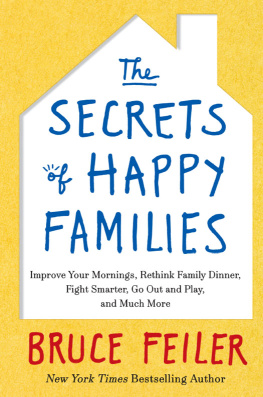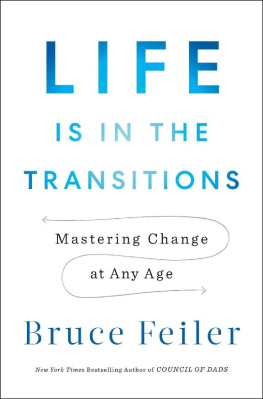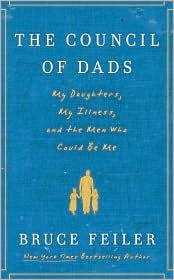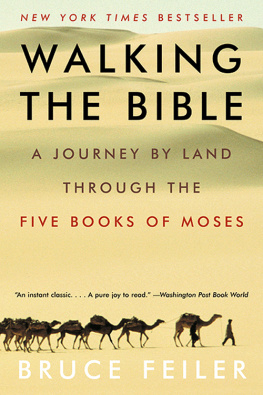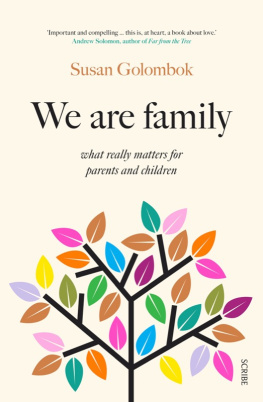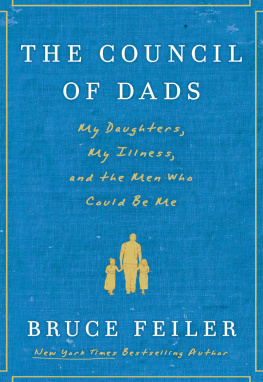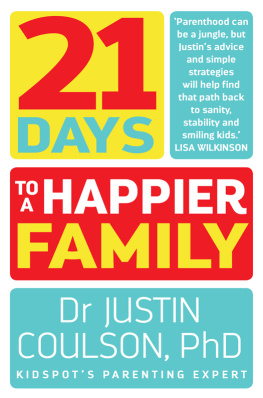For Eden and Tybee
Wherever you go
Whatever you do
Always remember .. .
All happy families are alike; each unhappy family is unhappy in its own way.
LEO TOLSTOY
Contents
I T WAS THE first night of our annual family get-together in August. For four generations my family had been gathering every summer on Tybee Island, Georgia, just east of Savannah. We held raucous family meals of steamed shrimp, corn on the cob, and mudslinging over politics. We worked together on eccentric art projects using bottle caps and misplaced dominoes. We got stung by jellyfish.
My grandfather had taught us blackjack in that place. I had my first kiss there. My wife, Linda, had so embraced the island she suggested we name one of our twin daughters Tybee for this quirky paradise. Our other daughter was named for her own magical garden, Eden.
But now that paradise was on edge.
Linda and I were the first to arrive. Our girls had recently turned five years old, meaning we had survived the parental death march of sippy cups and diaper caddies. But now we were flummoxed by a new set of challengesgetting the family up and out the door every morning, wrangling our kids to sit through dinner once in a while, remembering to flirt with each other occasionally. On top of that, I had forgotten to pack the girls stuffed animals that morning, meaning I would be sleeping on the cold side of the bed at exactly the moment we were supposed to be having vacation sex.
My sister and brother-in-law, who arrived next, faced their own trialsprying their adolescent son from his Nintendo; pushing his tween sister to do her chores; preparing their kids for the onset of bullying, cliques, and peer pressure.
My older brother, who came last, warned us that it was time to have some tricky conversations about Mom and Dad. Had the moment come to switch Dad to a wheelchair full-time? Was Moms eyesight so weak she should stop driving at night? Should they sell their house and move closer to us? Should they sell their house and move farther from us!
I felt like a piece of bologna in the sandwich generation, squeezed between aging parents and rising children.
Sure enough, all the tension soon boiled over. As we gathered for dinner, I noticed something out of the corner of my eye. My nephew was texting under the table. I knew I shouldnt say anything, but I couldnt stop myself and asked him to put his phone away.
Kaboom! A mushroom cloud erupted. My sister snapped at me not to parent her son; my mother huffed that all the grandchildren could have better manners; my father pointed out that my daughters were the ones balancing spoons on their noses; my brother harrumphed that it was impossible to have an adult conversation anymore; and my wife threw up her hands and went to retrieve ice cream for the girls exactly as her mother would have done .
But they havent even finished their vegetables, I complained.
But Mom promised us banana splits! they cried, dissolving into sobs.
Thats it, girls, I said. Were going to bed! That sent the girls sprinting to the far side of the house, and eventually everyone retreated to separate rooms.
Later that night my father called me to his bedside. There was a quiver in his voice, a palpable sense of fear I could never remember hearing before.
Our family is falling apart, he said.
No, its not, I said instinctively. Its stronger than ever.
But lying in bed that night, I wondered: Was he right? Were we descending the slippery slope of dysfunction? What is the secret sauce that holds families together? What are the ingredients that make some families effective, resilient, functioning, happy?
Like everyone we knew, Linda and I were baffled by these questions. Now that our children were becoming their own people, the challenges of developing a family culture seemed more nebulous and more acute. Our girls were in the golden years of childhoodfrom the first step to the first kiss; from potty training to the promwhen we would have our best hope of cultivating a family identity. But while the world overflows with advice about breast-feeding, sleeping, and tantrums, smart thinking about later childhood is harder to find.
Maybe its because those problems are gnarlier. Navigating nap time is childs play compared to navigating screen time. How do you teach kids discipline while making sure they have fun along the way? Is it possible to develop timeless values in a 24/7 world that prizes novelty and coarseness? How do couples find time to nurture each other while spending so much time nurturing our kids?
Whenever Linda and I have these questions, we turn to our parents, even though their experience is so outdated its almost quaint. Or we turn to Facebook, even though our friends are as clueless as we are. Magazines and TV chat shows offer mostly empty platitudes. How-to manuals with their chirpy banalities pile up unread next to our beds. Even our metaphors are outdated. Sandwich generation? Linda wouldnt dare serve processed luncheon meat to our kids. So what are we, then, just schmears of organic hummus in a vegetarian wrap?
These days, the old rules no longer apply, but new ones have yet to be written.
The next morning I turned to Linda: So whom do we call to make sure our family works?
A NEW DAY FOR FAMILIES
It turns out to be an astonishingly good time to ask that question. The last fifty years have seen a wholesale revolution in what it means to be a family. We have blended families, patchwork families, adoptive families. We have nuclear families that live in separate houses as well as divorced families that nest in the same house. We have families with one parent, two parents, three parents, or more, and families with one, two, or three faiths, and some with none.
No matter what kind of family you are part of, an enormous new body of research shows that your family is central to your overall happiness and well-being. Study after study confirms that the number one predictor of life satisfaction comes from spending time with people you care about and who also care about you. Simply put, happiness is other people, and the other people we hang around with most are our family.
So how do we make sure were doing that effectively? The last decade has seen a stunning breakthrough in knowledge about how to make families, along with other small groups, run more smoothly. Myth-shattering research from neuroscience to genetics has completely reshaped our understanding of how parents should discipline their children, what to talk about at family dinner, and how adult siblings can have difficult conversations. Cutting-edge innovation in social networking and business has transformed how people work in groups. Trendsetting programs from the U.S. military and professional sports have introduced remarkable techniques for making teams function more efficiently and bounce back from setbacks more quickly.
But most of these revolutionary ideas remain ghettoized in their subcultures, where they are hidden from the peoplethe familieswho need them most.
This book is designed to make a dent in that problem.
I have tried to write the book I have most wanted to read as a spouse, parent, uncle, sibling, and adult child. Ive broken down families into the things we all dolove, fight, eat, play; fool around, spend money, make pivotal life decisionsand tried to discover ways to do them better. I have sought out the most illuminating experiences, the smartest people, and the most effective families I could find as a way to assemble best practices of families today. My goal was to put together a playbook for happy families.
Most of these ideas have been hiding in plain sight. I took a course from the founder of the Harvard Negotiation Project on how to fight smart. I visited ESPN to find out what the best coaches know about building successful teams. I worked with Green Berets to design a perfect family reunion. I got some advice from Warren Buffetts banker about how to set up an allowance. I sat down with top game designers in Silicon Valley to see how we can make family vacations more fun.

